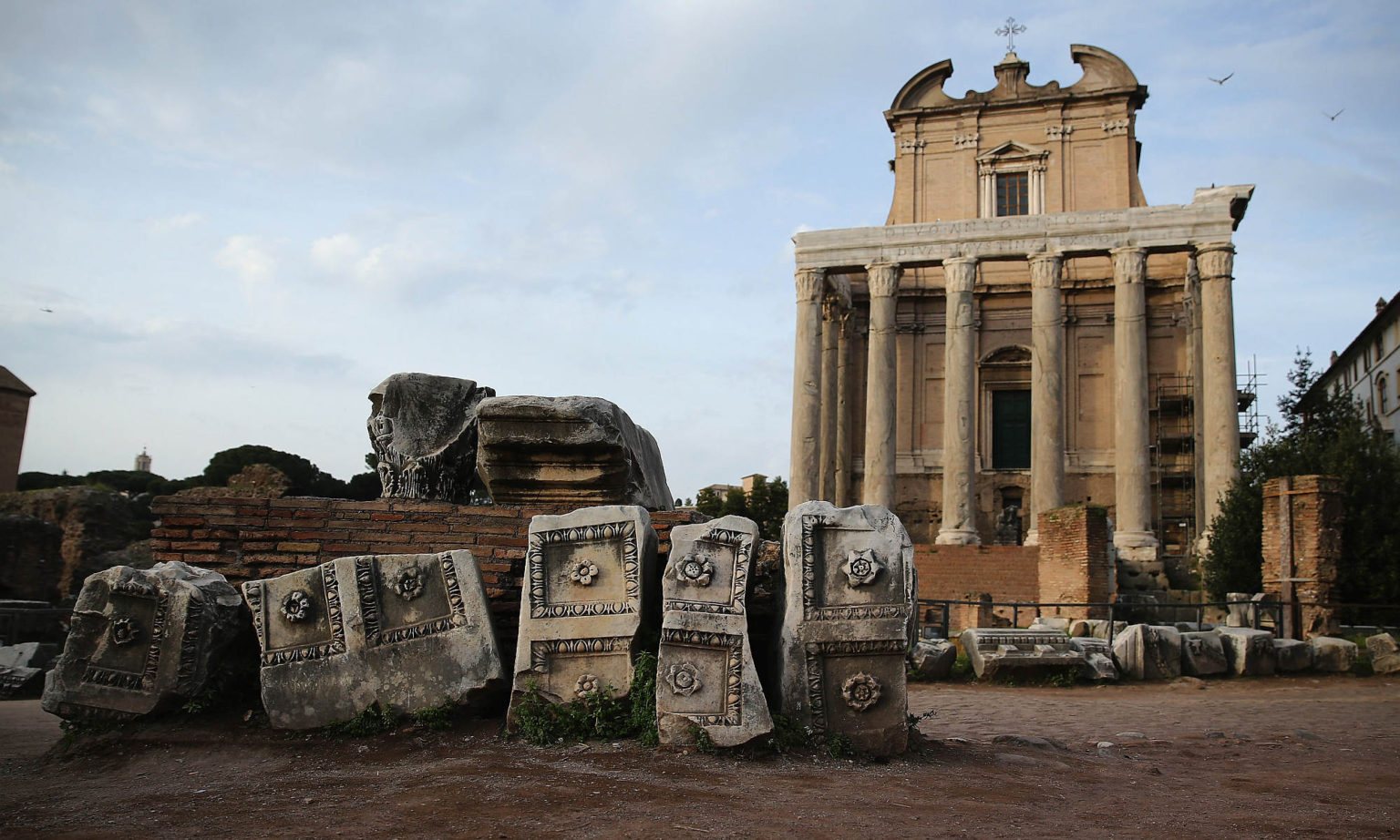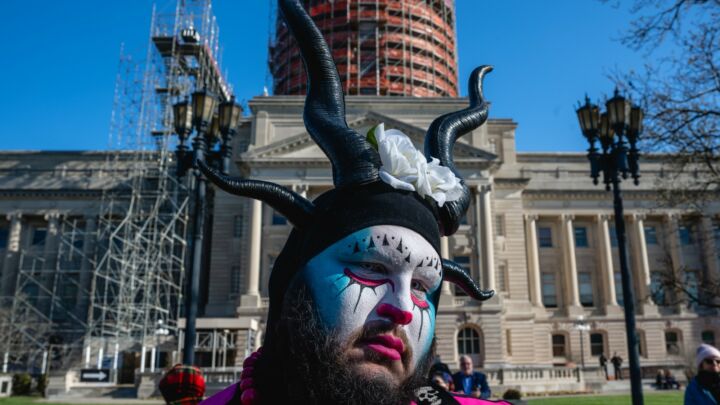
Long-read
The Roman way
Rémi Brague explains why the Romans’ inferiority before the Greeks was so important to European culture.
Few have the theological depth, philosophical cast of mind and linguistic range as Rémi Brague. Now a professor emeritus of philosophy at both the Sorbonne, and the Ludwig Maximilian University of Munich, Brague continues to dig at the roots of European culture, exploring the role played by the Ancient Greeks and Romans, Judaism, Christianity, and later, Islam. He kindly gave the spiked review an opportunity to ask him about his vision of Europe, why the Romans’ attitude to the Greeks was so significant, and the importance of tradition to Europe’s future.
spiked review: Is it possible to define Europe as a distinct cultural entity?
Rémi Brague: There is no other way to define it, if we take the verb ‘to define’ in its literal, etymological meaning, that is, tracing the boundaries – in Latin, fines. Europe, unlike America and, for that matter, Africa, has no natural boundaries that separate it from Asia. Europe defines itself as a cultural entity and has been doing that since the beginning, when Charles the Great (or Charlemagne), in the early 9th century, was hailed as Pater Europae (Father of Europe). ‘Europe’ meant previously either the direction of the setting sun, or a merely geographical entity, meaning whatever is on the western shore of the Bosphorus. But with the political and cultural project of Charles the Great, and of the Ottonians (a 10th-century Saxon dynasty), Europe became an entity of its own that had a definite content: politically, a Roman Empire in the west that Charles the Great and the Ottonians hoped would be a match against the empire in Constantinople; culturally, the first ‘Renaissance’, with people like Alcuin of York.
Elements of Europe also spread all over the world: European people themselves moved throughout America and Oceania, and technology and new social habits and mores spread everywhere. This brought about mighty upheavals in the wake of colonialism, and neither the colonised societies nor the former colonial powers are yet out of the woods.
review: One of your most important insights into the meaning of Europe is the centrality of ‘la voie Romaine’, and your idea of ‘secondarité’. Could you explain how Rome’s sense of its inferiority to Hellenic culture has proved so productive for the development of Europe?
Brague: I am not especially keen on the Romans of history. They built a ruthless empire, albeit one no worse than any other empire, and even better than some. But they did have the great merit of inventing law and a citizenship grounded not on race, language, family ties or whatnot, but on merely juridical principles. For me, however, their greatest merit consists in having realised they were no match for the cultural achievements of the Greeks, and then having the courage to sit at the Ancient Greeks’ feet and learn. This provided Europe with a practical version of a theoretical truth: what is mine is not necessarily better than what comes from elsewhere. We have to be ready to accept foreign goods and to prefer them to our own traditions. Hence, we should be curious and keep an eye on other cultures that might have something to teach us. This same attitude was to be found and proved fruitful many centuries afterwards, when America was discovered, and when ancient languages of India, Egypt, Mesopotamia and so on, were unearthed and deciphered. All this happened earlier than the colonial adventure, and it happened independently from it.
review: You also write of the role of secondarité with regards to Christianity, and the relationship between the New and Old Testaments, the rootedness of Christianity in the Jewish covenant and scriptures. How has that contributed to Europe’s sense of itself?
Brague: Such a consciousness could anchor this Roman-to-Greek cultural feeling of coming-after-better-people to the highest principle there is – ie, our relationship to God’s transcendence. The New Testament is hardly understandable without the Old Testament, which we had better call the first one. In its whole, the New Testament is a reading of the First Covenant in the light of a new fact. To use the Hebrew word of art, it is a pesher. The new, unexpected event that sheds light on the whole of what came before is the life, teaching, death and resurrection of Jesus. The upshot of this re-reading was that the writings of the First Testament became part of the Christian Bible.
review: Does Islam lack a sense of secondarité?
Brague: As a religion, Islam has a vivid consciousness of the dependence of mankind on an almighty God. But even at this most fundamental level, there is a reluctance to admit that it arose after earlier revelations, let alone that it might be indebted to them. Muhammad is supposed to have reminded mankind of the pre-eternal universal submission of mankind to God (Koran, VII, 172). His message was the same as the one descended unto Noah, Abraham, Moses and Jesus. All those prophets are supposed to have been Muslims and to have received books or at least ‘sheets’. The main difference is that, unlike what Islam claims to have happened to the Torah and to the Injil (‘Gospel’), the Koran was not tampered with by its bearers.
As a consequence, the civilisation of Islam had a tendency towards forgetting the foreign origin of some of its achievements. It received a great deal from previous cultures, like Byzantium and, later, Persia for administrative techniques, money, etc. Just think of the Arabic word for ‘mail’, barid, which hails from the Greek, which itself stems from the Latin, which had borrowed it from the Gallic of my ancestors… In the 9th century, the Arab world translated huge amounts of Greek knowledge: mathematics, astronomy, botany, medicine, Aristotelian philosophy, all branches of knowledge that it enlarged and deepened. The Latin West took a great deal from the Greek heritage.
But there are two salient points. First, the Arab world never got interested in literature or history, and had next to no knowledge of Plato. Second, it never cared for the letter of what it had translated, but paid attention to the content only. Once they were translated, the original manuscripts simply got lost. In contrast, European philologists were busy collecting manuscripts, establishing critical editions, etc. Preserving the original enabled later readers to get back to their content and to criticise the present, in a permanent cycle.
review: You have written about the expansion of Europe outwards, from a heartland to a realm of influence, of the remarkable success of what one could call European achievements in law and science, and, although non-European in origin, the development of Christianity as a global religion. Is there something universal about European culture?
Brague: Any foreign cultural product has a tendency to spread if it is considered to be better than its home-bred equivalents. This is almost a law of economy. The great inventions of the Middle Ages made European expansion possible. They came from remote China, like the magnet, gunpowder, the water-mill, etc. But they found in Europe a soil on which they could thrive and find new applications. For instance, whereas the Chinese used powder for fireworks, the Europeans used it for warfare and made guns.
Undoubtedly, there is, or was, something like a European dynamics, in contradistinction to more static cultures. The main sources of European culture – the Bible, Greek philosophy and Roman law – all have a claim to universality.
review: Given your emphasis on the creative role of tradition, on a perpetual return to and re-interpretation of prior sources, in the development of Europe, has the advent of modernity, with its emphasis on freeing man of his dependence on tradition, on external sources of authority, affected the development of Europe?
Brague: My hunch is that it has. But let me first distinguish between modernity, or modern times, and what I call the ‘modern project’. Firstly, modern times represent a period in history carved by historians out of the continuous flow of events. But, even as such, there is more to it: ‘Modern’ no longer means what happens to have taken place nearer to the present time. Our own use of the word suggests that what is new is worth more than what came before. Claiming to be ‘modern’ means: we live in a better time than the benighted Middle Ages. As a historical period, modernity has brought about the better and the worse, in all realms. This is a feature that it shares with each and every period of history that we know of.
Freeing oneself is a difficult but noble task. But it is strange that tradition should be perceived as weighing on us like a burden that we should cast off and, in the first place, as something external to us. Tradition is what gives us to ourselves. The very vehicle of thought and freedom, language, is handed over to us by tradition.
review: Do you think the European Union builds on the cultural heritage of Europe?
Brague: First, let me belabour the obvious: The European Union is not the same thing as Europe. There is a symbol of sorts for this lack of coincidence: Switzerland. This small country is a small-scale image of Europe. Located in the very heart of Western Europe, it has three official languages and the bulk of its citizens belong to the two main denominations of Western Christendom. Yet, this emphatically European country doesn’t belong to the European Union and hardly wants to join.
At the beginning, the original intention of the European construction was moral in nature: right after the Second World War, the founding fathers wanted to make a further conflict impossible. Putting coal and steel into a common pool would nip in the bud any economic cause of conflict. They didn’t want thereby to maximise profit, but to ensure peace. As a matter of fact, peace did happen, but not thanks to the EU. It’s the other way around: the EU was made possible by peace. And this peace was the result of the Marshall Plan and of the military superiority of the US over the Soviet Union.
In order better to describe the relationship that obtains between the EU and the cultural heritage of Europe, I’m afraid that the right phrase would not be ‘building on’, but rather ‘preying on’. This implies that we, in the long run, destroy what we use, as parasites do. This destruction has recently taken a particularly acute form. I am struck by the rage with which some higher civil servants, in my country [France], act as if they wanted to weigh anchors from our past by doing away with the study of classical languages, by trying to get rid of the Biblical influence, and even by flatly denying that it ever happened.
Rémi Brague is professor emeritus of Arabic and religious philosophy at the Sorbonne. He has written many books, including: Eccentric Culture: A Theory of Western Civilization (2009); and The Wisdom of the World: The Human Experience of the Universe in Western Thought (2004).
Picture by: Getty.
To enquire about republishing spiked’s content, a right to reply or to request a correction, please contact the managing editor, Viv Regan.







Comments
Want to join the conversation?
Only spiked supporters and patrons, who donate regularly to us, can comment on our articles.